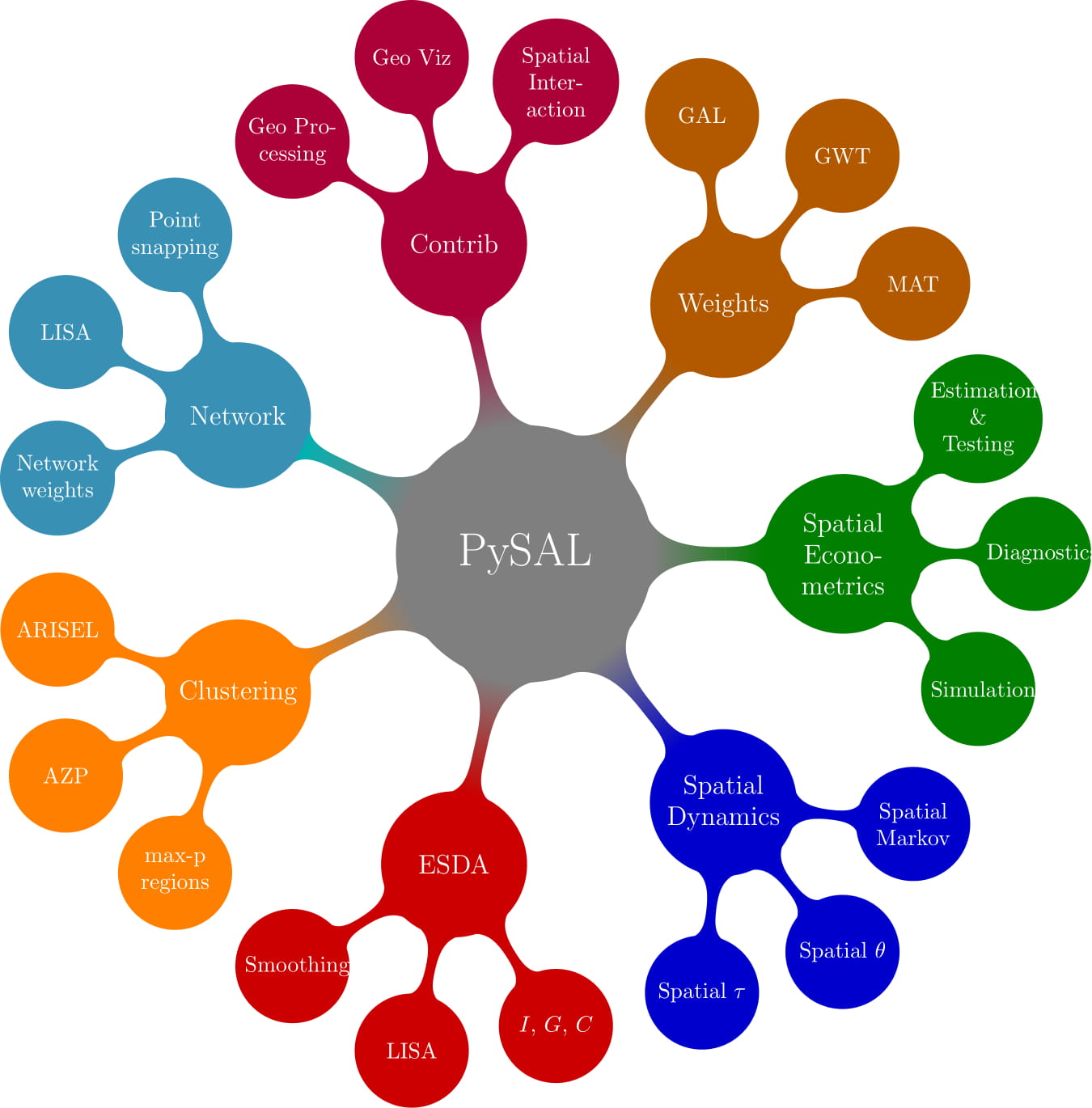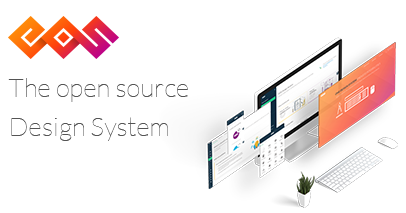MNE is a free and open source software designed for processing electroencephalography (EEG) and
magnetoencephalography (MEG) data. EEG and MEG data analysis requires advanced numerics, signal
processing, statistics and dedicated visualization tools. MNE-Python is a pure Python package built on
top of numpy, scipy, matplotlib and scikit-learn.
Status: Ideas ready
PySAL is a library for quantitative analysis of geographic data built on top of numpy and
scipy.sparse.. The package includes methods for exploratory spatial data analysis and cluster
detection, regression models with geographical data, space-time models, and visualization.
Status: Ideas ready
Python Software Foundation GSoC Team
Under the Python Software Foundation (PSF) the GSoC Team has ran a GSoC umbrella organization for
the Python language. This sub-org is being used to sponsor tools for the PSF GSoC team, specifically
tools for managing GSoC from diverse sub-orgs for PSF. At this time, Python is NOT sponsoring any
projects related to the development of the language -- but we're looking for mentors if you want to run
such a project
Status: Ideas ready
SciPy is a library that provides fundamental routines for scientific computing: statistics,
optimization, integration, linear algebra, Fourier transforms, signal processing, and more.
Status: Ideas ready
StarKit is a library to infer stellar parameters from astrophysical observations
Status: Ideas ready
Nuitka is a Python compiler written in Python. The mission
is make Python a C speed programming language with graceful
degradation, i.e. simple Python is very fast, while using all
the features is still faster.
This is a chance to join this extra ordinary project and
make a difference to the programming world by taking Python
where it currently is not.
Nuitka currently does not yet live up to the task, but with
your help it will get there sooner and you will have been
a part of it.
Status: Ideas ready
MSS - Mission Support System
Examining the atmosphere by research aircraft is a costly and highly
collaborative effort involving a large community of scientists, their
one-of-a-kind measurement instruments and a very limited amount of
available flight-hours.
The Mission Support System enables the planning of optimal flight
paths by visualising the results of model simulations in combination
with the chosen flight path and allowing for a simple iterative and
collaborative improvement process, enabling the best measurement flights
possible.
With your help we can extend this client/server application for other approaches than only atmospheric research flights.
Status: Ideas ready.
EOS is the first open source and customizable Design System to help open source, SMEs, and all sizes
of organizations deliver outstanding user interfaces and consistent user experience.
Design Systems serve as a centralized source of information for UX, UI, and other brand-related
guidelines that help not only developers find the UI element or component they need, but also
designers to build faster prototypes while streamlining the collaboration between the two.
Status: Ideas ready.
Scrapy is the world's best-loved scraping framework, helping people to efficiently extract and use
web-data using Python.
Using Scrapy, you can travel through sites at remarkable speed, and using only a few lines of
readable code, extract high-quality
data for use in research, for enterprise, for archival, and more.
Scrapinghub, as lead maintainers of Scrapy and its constellation of supporting libraries, is open to
mentoring motivated students
who would like to work on Scrapy, or on a new Open Source library for quality-assurance in Scrapy
spiders, Spidermon.
Status: Ideas ready.
Statsmodels is a general purpose statistics and econometrics package written in Python and some
Cython.
It is part of the scientific Python stack that is oriented towards data analysis, data science and
statistics, but is also used for statistical analysis in science, engineering and other fields.
Statsmodels provides a large range of statistical methods, estimation and prediction models and
hypothesis tests, among them linear, generalized linear and robust linear regression models, models
for discrete data, and a large group of forecasting models in time series analysis.
Statsmodels has participated for many years in GSOC. This provided a large contribution to improving
the coverage of both basic and advanced methods in statistics and econometrics.
Status: Ideas in progress.
Buildbot is an open-source framework for automating software build, test, and release processes.
Buildbot can automate all aspects of the software development cycle: Continuous Integration,
Continuous Deployment, Release Management
Buildbot is a framework in which you implement a system that matches your workflow
and grows with your organization.
Buildbot has participated for many years in GSoC, and some of its core features were
developed during GSoC.
Status: Ideas ready.
The CVE Binary Tool is a security tool that scans for a number of common, vulnerable open source
components (openssl, libpng, libxml2, expat and a few others) to let you know if your system
includes common libraries with known vulnerabilities.
Status: Ideas ready.
DFFML provides APIs for dataset generation and storage, and
model definition using any machine learning framework, from
high level down to low level use is supported. The goal of
DFFML is to build a community driven library of plugins for
dataset generation and model definition. So that we as
developers and researchers can quickly and easily plug and
play various pieces of data with various model
implementations.
Status: Ideas ready.
Mercurial is a free, distributed source control management tool. It efficiently handles projects
of any size and offers an easy and intuitive interface.
Status: Ideas page in progress
TARDIS is an open-source code to explore observations of supernovae (exploding stars).
It has a fun and active community that consists of Astrophysicists, Computer Scientists and
Statisticians
Status: Ideas ready
Python Argentina Civil Association (A.C.PyAr) is a formal non-profit organization of programmers
with focus on community projects, mainly oriented to Spanish-speakers & Latin Americans:
- Educational initiatives (CDPedia: Spanish offline wikipedia, PyZombis: Spanish MOOC, Python
Tutorials)
- Community management tools (PyArWeb: local website in Spanish, asoc_members: NGO membership)
- Libraries and applications for accountants & lawyers (legal case web app, electronic invoice
libs & tools)
- Developers tools (fades: easy virtualenv wrapper)
Status: Ideas page ready
LiberTEM is a Python-based open source platform for high-throughput distributed processing of pixelated scanning transmission electron microscopy (STEM) data and other large-scale binary data sets. A responsive web application based on React and Redux provides a GUI, it can be used in Python scripts and Jupyter notebooks through its API, it uses dask.distributed as its default processing back-end, and it relies heavily on numpy for processing and data handling.
Status: Ideas ready
Panda3D is an open source framework for 3D rendering and games. It combines the speed of C++ with
the ease of use of Python to give you a fast rate of development without sacrificing on performance.
Status: Ideas ready
Plone is a Python-based CMS built with workflow and security at the forefront. It is developed
by a world-wide community. In the 18 years sicne its first release, Plone has evolved into a mature solution,
with an emphasis on code quality and testing. But Plone is also forward-looking. In the past few years
development has focused on headless technologies and cutting-edge front-end implementations.
Status: Ideas ready
Friends of the PSF
Here's some more interesting organizations that use Python!
- OpenAstronomy - an umbrella
organisation that includes open source projects used by researchers and engineers around the
world to better understand the universe
- GNU Mailman -
mailing list management software
















